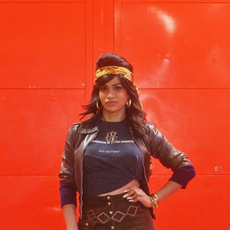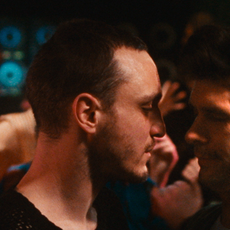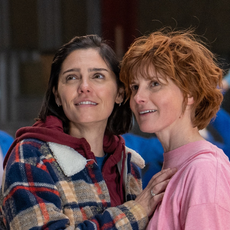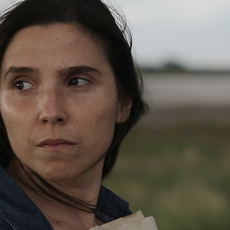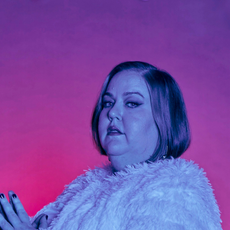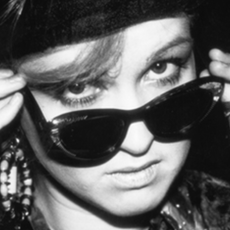
LGBTQ+ stories at Edinburgh International Film Festival
LGBTQ+ stories at Edinburgh International Film Festival
This year’s EIFF film programme features a kaleidoscopic selection of the latest LGBTQ+ cinema, and films where themes of queer kinship and activism gently run through their narratives and characters. Film Programmer Rafa Sales Ross talks us through some of the highlights.
Winner of the Teddy Queer Film Award at this year’s Berlin Film Festival, Orlando, My Political Biography is the beautiful debut feature film from Paul B. Preciado, author of Testo Junkie. Taking as its starting point Virginia Woolf’s Orlando as a portrayal of trans identity, the film sizzles with a wildly imaginative mix of wit, art and politics. Preciado blends irreverent vignettes and earnest depositions, enlisting a broad array of trans performers to take on the lead role, their eyes turning to the camera to tell stories of pleasure, resilience and survival. A searing work of activism, the film is also a radical, enlightening, and roaringly entertaining ode to queer joy.
Renowned American filmmaker Ira Sachs makes Paris the setting for the steamy love triangle at the centre of Passages. Starring Ben Whishaw (This is Going to Hurt), Adèle Exarchopoulos (Blue Is the Warmest Colour) and Franz Rogowski (Transit), Passages dissects the ugliest traits of gorgeous people in a searing examination of narcissism that infuses Sachs’ usual curiosity for the intricacies of human relationships with a scorching hot portrayal of desire.
Ben Whishaw is present again, this time as the unseen narrator, in Ungentle, a collaboration between artist, writer and podcaster Huw Lemmey (Bad Gays) and artist filmmaker Onyeka Igwe (No Archive Can Restore You). It’s a poetic 16mm film that finds in the rhythms of nature the framing in which to consider the intersecting histories of homosexuality and British espionage. Ducks swim calmly by ponds, tree branches follow the orders of the wind, and terracotta buildings invite curiosity through shut windows as Whishaw’s voice steers the viewer through a world of carefully concocted codes and refined deception. Sitting at 37 minutes, Ungentle is one of the best films we have seen this year of any length and will be presented at EIFF in a solo cinema screening, with tickets half-price.
Two British debuts tell wildly different tales of queerness and prejudice: in Janis Pugh’s bright Chuck Chuck Baby, the life of factory worker Helen (Sherlock’s Louise Brealey) is turned upside down with the unexpected arrival of Joanne, an old school friend. Gone are the grey days split between packaging chickens and caring for her mother-in-law, and in come long afternoons playing like a child and learning how to fall in love with her small Welsh town, her life, herself. A neon-infused, heartwarming affair, Chuck Chuck Baby mixes the catching beats of a musical with the touching notes of a dramedy about personal discovery aided by a loving, female-led community.
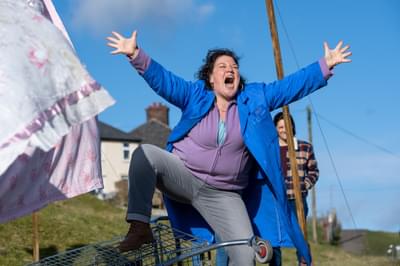
Beverly Rudd (Paula) in Chuck Chuck Baby
Meanwhile in London, we have Sam H. Freeman and Ng Choon Ping’s unsettling Femme, adapted from the filmmakers’ BAFTA-nominated short of the same name. Pride’s George MacKay taps into fearsome traits of hypermasculinity to embody Preston, a roaming thug who splits his nights between banter with his bros and hunting for rushed sexual encounters in gay saunas. One night finds him lingering at the threshold of a club night where Jules (Candyman’s Nathan Stewart-Jarrett), is about to appear as Aphrodite Banks, a gorgeous, towering drag queen. This encounter is the first drop of powder in the loaded keg that is Femme, a violent psychosexual thriller about identity, revenge and shame.
In the unclassifiable Argentinian mystery drama Trenque Lauquen, we find an expansive take on queer kinship as a lesbian couple extend a hand to both Laura, our mysterious protagonist, and possibly something unhuman, that throbs in the attic.
While back in documentaries, the inspiring work of queer activist Aubrey Gordon is highlighted in Your Fat Friend, fighting anti-fat bias with intellect, wit and warmth.
And allyship is found in Let The Canary Sing the uplifting documentary portrait of Cyndi Lauper, screening as part of our Cinema Under the Stars outdoor screenings, which details the singer’s decades-spanning creative practice, HIV and AIDS activism and intersectional feminism. Lauper’s songs Boy Blue and True Colors found their way into the musical heritage of the HIV and AIDS epidemic of the 1980s and 1990s, and her work with young people within the LGBTQ+ community who may face homelessness continues to this day.
